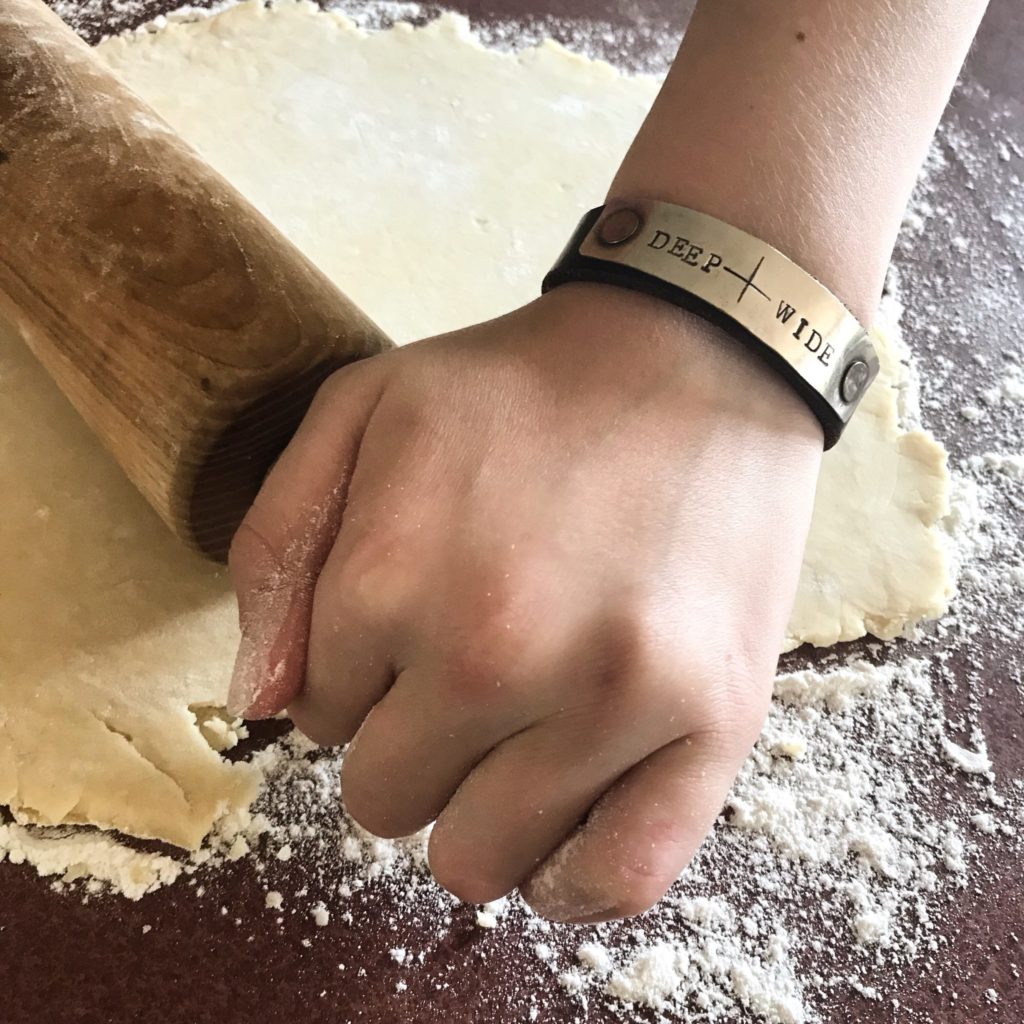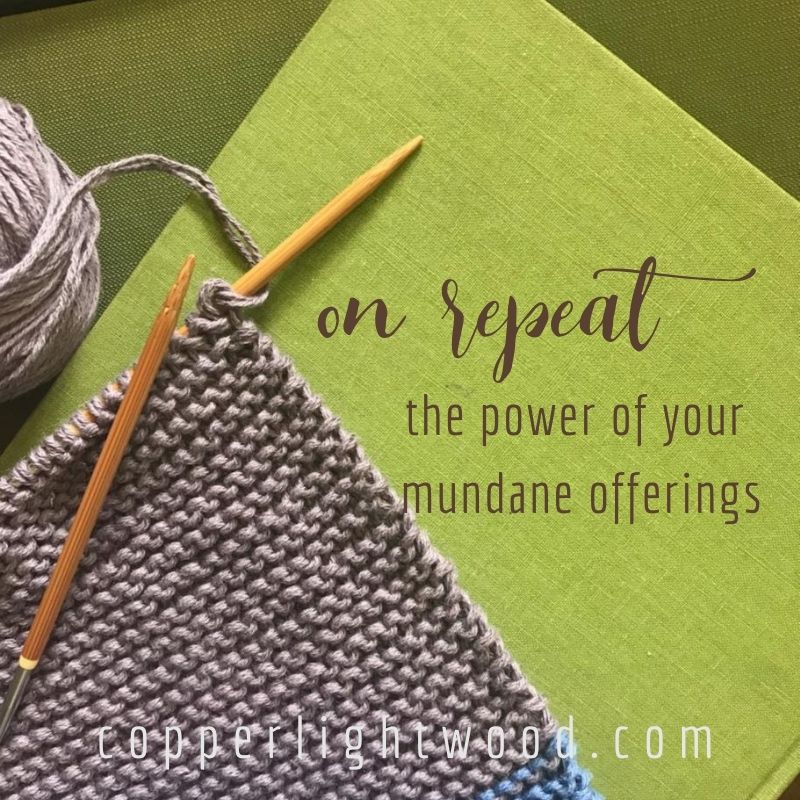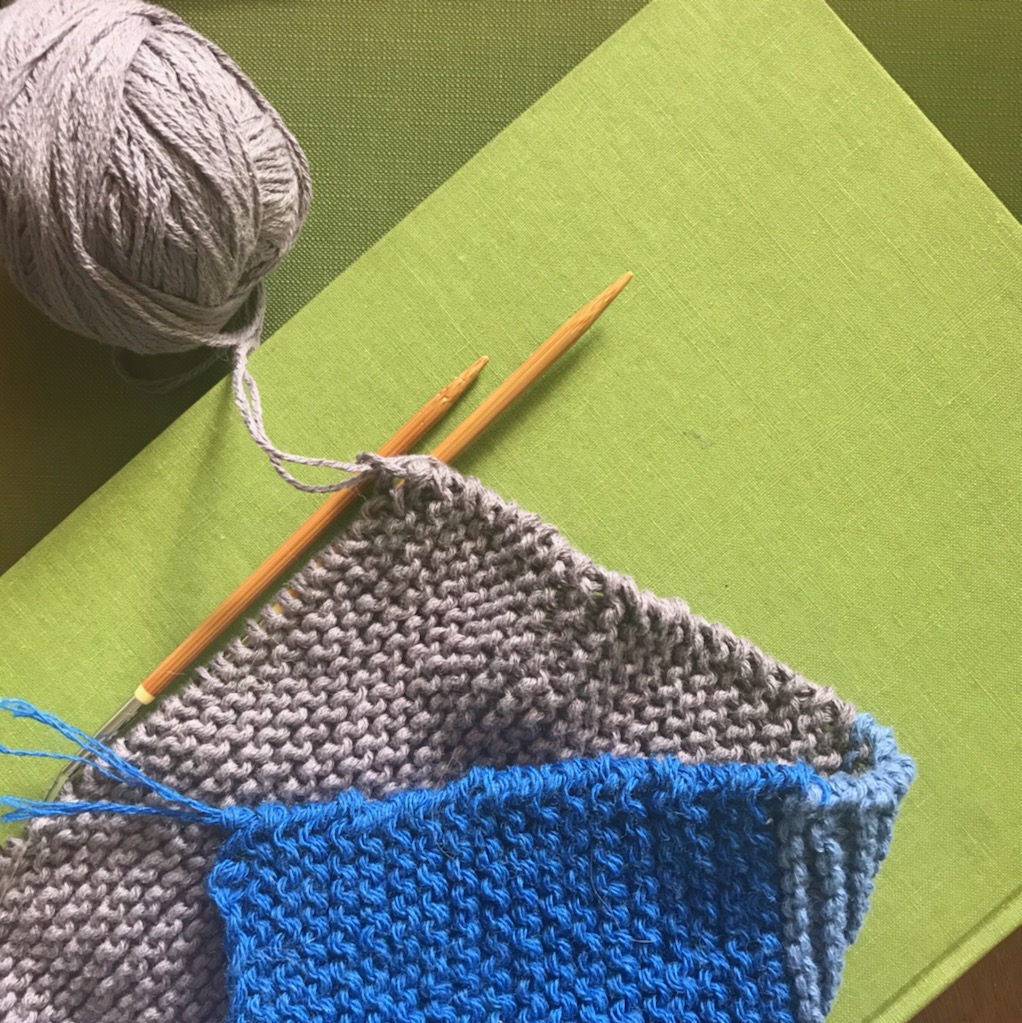Vin was describing liverwurst to our kids, who have never had it.
“It’s like pâté,” he said, “but different. More like the consistency of…umm…uh…”
“Cat food,” I said, being helpful.
“Hummus,” he said, ignoring me.
In spite of his correction and our kids’ tendency toward fearlessness in the kitchen, no one has begged yet to try making it. Shocking, I know.

Maybe they’d be more enthusiastic if I had kept my snark to myself. In fact, I know they would – these kids are fearless in the kitchen and love to cook; with a little enthusiasm, they might master liverwurst to the point of converting me, even.
(Maybe that’s the danger. Maybe I’m afraid of being converted, so I let my fear dampen the fire of their enthusiasm. Mea culpa.)
As a homeschool mom, I’ve seen the damage a negative attitude can do. It only takes one older, grumpy kid to complain about math in front of a bright-eyed young sibling, and those bright eyes narrow, and droop, and look scornfully at their page of arithmetic practice, too. It takes one bigger kid to say something like, “I hate history” (or whatever) and it plants a weed instead of a seed in the hearts of the younger ones watching.
And this is a time to be planting seeds, and also reaping a harvest. This is a time to be pulling weeds, not planting them.
Three of our kids have been baking and cooking for years now, and it’s made me positively lazy in the cooking department. It started from necessity when life went upside down and my hands were full with special needs (and then babies and toddlers again). And they were happy – thrilled even, usually – to fend for themselves and learn to make things.
Scrambled eggs. Quesadillas. Mashed potatoes. Muffins, as long as they promised to clean the tins.
They’ve gone from pretend menus and daydreams of owning a restaurant to making perfectly flaky biscuits and a killing on biscotti sales. They read cookbooks for fun and will try cooking whatever we’ll let them, and of course they prefer sweets to savories. They have a mercenary disregard for anyone with sensitivities to gluten and sugar – as I type this, there’s an apple pie on the counter that I absolutely should not even touch.
But will I touch it? HECK YES.
Afton has taken up curing his own bacon, and making cheese, and if he keeps it up he will pay off his own house before we do. He’s on his second year of making it part of his school curriculum, and this year it’s officially culinary arts.
Vince and I don’t get a ton of credit for it. It was necessity, plus encouragement, plus environment – we provided plenty of cookbooks, videos, and opportunity. They’ve done the rest.
And if this isn’t a picture of homeschool, I don’t know what is.
It’s our 16th year of homeschooling, but as I watch the influx of new homeschoolers and answer all the messages in my inbox, I know many of them – maybe you’re one of them – were driven to it by necessity, just like my kids were to cooking, at first. My deepest prayer for you in this season is that you would not succumb to the pressure to get everything right, right now.
If this is you – you, new to this, or you, picking it up again for another try because the alternative is, ahem, unsavory – hear me now: I know it feels like there’s so much pressure. Depending on your situation, there are a ton of deadlines and paperwork and decisions to make.
But the pressure is off. No pressure. Just say no to the pressure.
You don’t have to figure everything out right now. You don’t need to discover each of your kids’ giftings and interests and love languages and enneagram numbers and learning styles and math curricula and science programs RIGHT NOW.
Whew. Exhale. Deep breath.
You just need to spend time with them, and give them encouragement, resources, and opportunity. (And also, enthusiasm helps. You should try this kid’s baguette.)
But wait – can kids really get an education by hanging out with their parents? Even parents who (cough) barely remember long division and certainly don’t want to touch algebra?
I’ll say it again: HECK YES.
We have so many resources right now. We have videos and books, and tutorials. And we can hang out with our kids, with those books, with those videos, with conversation, with food, doing one thing at a time.
Some of those other things aren’t as important as they seem. Many of them will take care of themselves, becoming evident as you go.
Will it still be hard? No jive: Yep, it will. But just get going. Start with what you love, and then add the other stuff in. Ignore the pressure from people who tell you that liverwurst is like cat food when you want your kids to love it like hummus.
We won’t get everything right. Every year, often multiple times a year, we have to tweak and shift things: naptime, chore routines, math programs. History books that seem great but end up dry as dust. Handwriting books that don’t click with our lefty (or righty). Forensics books that are more crass than necessary.
But this is the beauty of doing it from home. We can shift. We get to change things if we want to.
It doesn’t mean you got it wrong. It means you’re figuring it out and getting it right.
Everything that a person learns becomes a part of himself, and as his character is formed, he recognizes that he is made up of those experiences he has had, the people he has met, the books he has read, and the things that he has thought. This is not a process that ends with a semester, or a graduation, but goes on and on as long as we are alive and learning.
The beautiful thing about approaching life as an opportunity to learn (read: this is what most of mean by “homeschool”) is that that life creates its own curriculum. You start to notice themes in what you read, and see, and hear.
Your science book starts to bring depth to that character you’re reading about in a novel, which touches on something you saw in the history lesson from last week. One subject blends into the others, because life is not categorized into evenly distributed slots to be analyzed and graded.
Because homeschool is not simply doing school at home and checking off the charts and lists. It can be that, but that’s like going to the most expensive restaurant in town and ordering plain toast.
Homeschool is the opportunity to make the school serve the home, instead of the other way around.
Homeschool is the ability to flex when it comes to routines, schedules, and requirements. (And special needs. And naptimes. And vacations. And sickness.)
Homeschool is the freedom to lean deep and wide into those giftings and interests, and see how far they can go.

My kiddo who’s doing culinary arts is learning a little about business math, and customer service, and sanitation. He’s brushing up on his division, fractions, and percents as he figures out how much to charge for baked goods after he’s added up the cost of ingredients. And last week, when we watched an 18-minute video of Julia Child highlights, he learned a little about wine, a little about French, and how many different things you can throw on the floor of a studio set.
So far he hasn’t practiced that yet.
But maybe he’ll start with liverwurst.
___
Want a bookmark reminder or two? Here are free, printable downloads for you, here and here.






